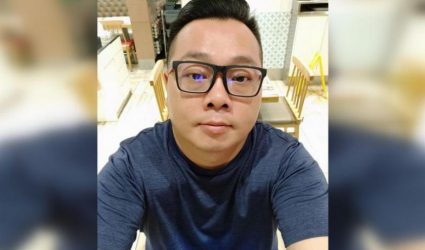Singapore man admits being Chinese spy in US

(SCMP) – News of a Singaporean man being charged in the US for spying for Chinese intelligence was widely discussed on social media among the city state’s residents on Saturday, with concerns centring on whether it would affect the city state’s reputation.
Jun Wei Yeo, 39, also known as Dickson Yeo, on Friday pleaded guilty in Washington to one count of operating illegally as a foreign agent for the Chinese government and obtaining non-public information from the United States.
Bilahari Kausikan, the former permanent secretary of Singapore’s foreign affairs ministry, weighed in on discussions on Facebook, sharing a speech he had given two years ago with his observations on how the Chinese conducted “public diplomacy in the Asia-Pacific”.
In an earlier post about the charges levied against Yeo, he said “one fool like this can get all Singaporeans suspected”.
Bilahari also pointed out in his Facebook post that Yeo studied at the National University of Singapore’s Lee Kuan Yew School of Public Policy (LKYSPP).
On Sunday the school said it had terminated Yeo’s PhD candidacy in its public policy programme. Yeo joined the programme in 2015, but had been on a leave of absence since last year.
Yeo’s PhD supervisor was Huang Jing – a Chinese-American political scientist who had his Singapore permanent residence revoked in 2017 after the home affairs ministry said he tried to influence foreign policy for an unknown government.
Court documents said Yeo had worked under the direction and control of Chinese intelligence over the past four to five years, and had used social media sites to “spot and assess” Americans with access to “valuable non-public information”. This included US military and government employees with high-level security clearances.
Yeo would recruit these individuals and pay them to write reports, saying they were intended for clients in Asia when in fact they were sent to the Chinese government.
To obtain sensitive information, Yeo was instructed by a Chinese intelligence operative in 2018 to create a fake consulting firm and post job listings on an online recruitment site. Yeo created the company using the same name as a prominent US consulting firm that conducts public and government relations, and received over 400 resumes.
About 90 per cent of these CVs were from US military and government personnel with security clearances, according to Yeo, who then sent them to Chinese intelligence operatives if he believed they would find them interesting.
Yeo also used a networking website to find people with resumes and job descriptions suggesting they were likely to have access to valuable non-public information. He found that once he contacted targets, the website would start suggesting additional potential contacts.
“According to Yeo, the website’s algorithm was relentless,” the seven-page court documents stated. “Later, Yeo told US law enforcement that it felt almost like an addiction.”
Yeo’s work with Chinese intelligence began in early 2015 while studying at LKYSPP, when he travelled to Beijing to give a presentation on the political situation in Southeast Asia.
“After his presentation, Yeo was recruited by various individuals who claimed to represent PRC-based think tanks. These individuals offered Yeo money in exchange for political reports and information,” the court documents said.
Yeo was tasked to provide the Chinese with information about international political, economic, and diplomatic relations, initially focused on Southeast Asia but later more on the US.
Yeo also met operatives across China on more than 20 occasions. During one of his meetings at a private hotel room, he was tasked with obtaining non-public information about the US Department of Commerce, artificial intelligence, and the “trade war” between China and the United States.
To further his efforts, the Singaporean moved to Washington from January to July 2019, where he attended multiple events at think tanks to network, and built contacts with individuals from lobbying firms to defence contracting companies.
Yeo was eventually arrested in November that year when he returned to the US with plans to get a Pentagon official to provide more confidential information.
Yeo’s case comes amid worsening relations between the US and China, and as part of the US Justice Department’s efforts to counter Chinese national security threats. Acting US Attorney for the District of Columbia, Michael R Sherwin, said as he announced the plea that the case showed how China can exploit non-Chinese nationals, the internet and the openness of American society to directly target financially vulnerable officials in the federal government’s backyard.
A former Singapore academic who asked not to be named said Yeo seemed to have an “inflated sense of his own importance and in need of recognition and validation”.
“In any case, I think the Chinese sure knew how to exploit their victims,” he said.
Echoing Bilahari’s point on how there could be more suspicion towards Singaporeans in the US, the former academic said there was already a growing concern that Beijing was using ethnic Chinese in the US to influence opinion and advance its interests.
“This case would suggest that those scholars were not being paranoid, and more worryingly for Singaporean academics in the US, or hoping to go to the US, they may come under greater scrutiny or be viewed with suspicion,” he said.
Dylan Loh, an assistant professor of social sciences at the Nanyang Technological University, felt that the Singapore government would be careful not to let its citizens be used by any foreign party, even though he felt the case would not substantially change Singapore’s relations with either the US or China.
“Singapore must be clear-eyed about the extent to which the Chinese state is prepared to exercise influence in various ways, and build safeguards in that regard,” he said. “I think others will judge Singapore based on its deeds and, I think, we have shown consistently that we are nobody’s stooge.”

